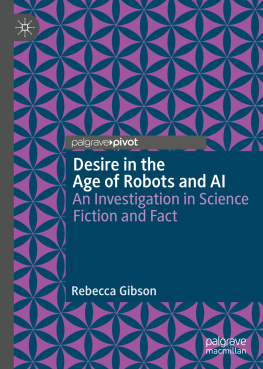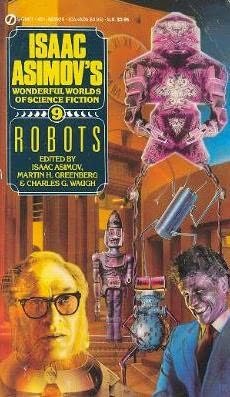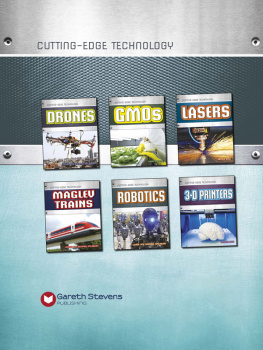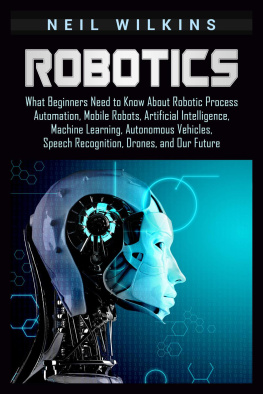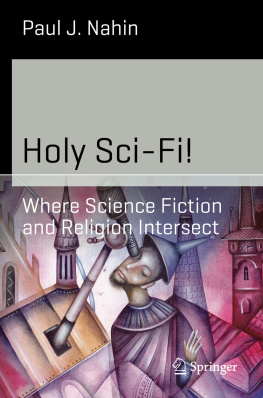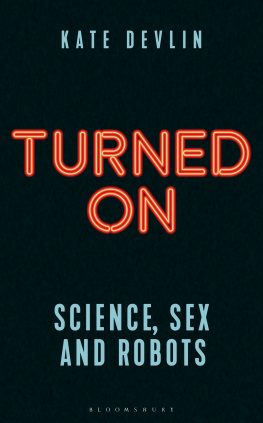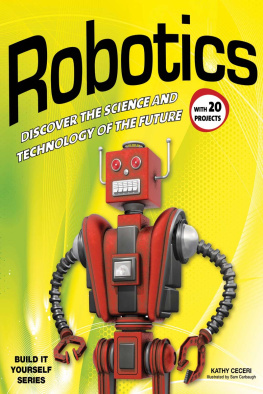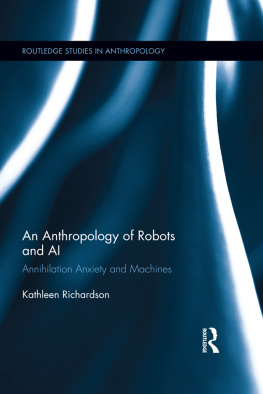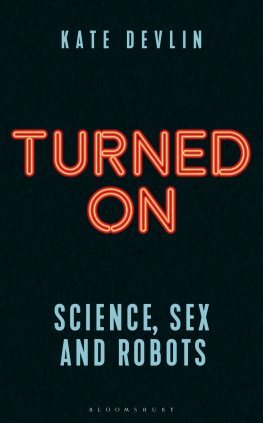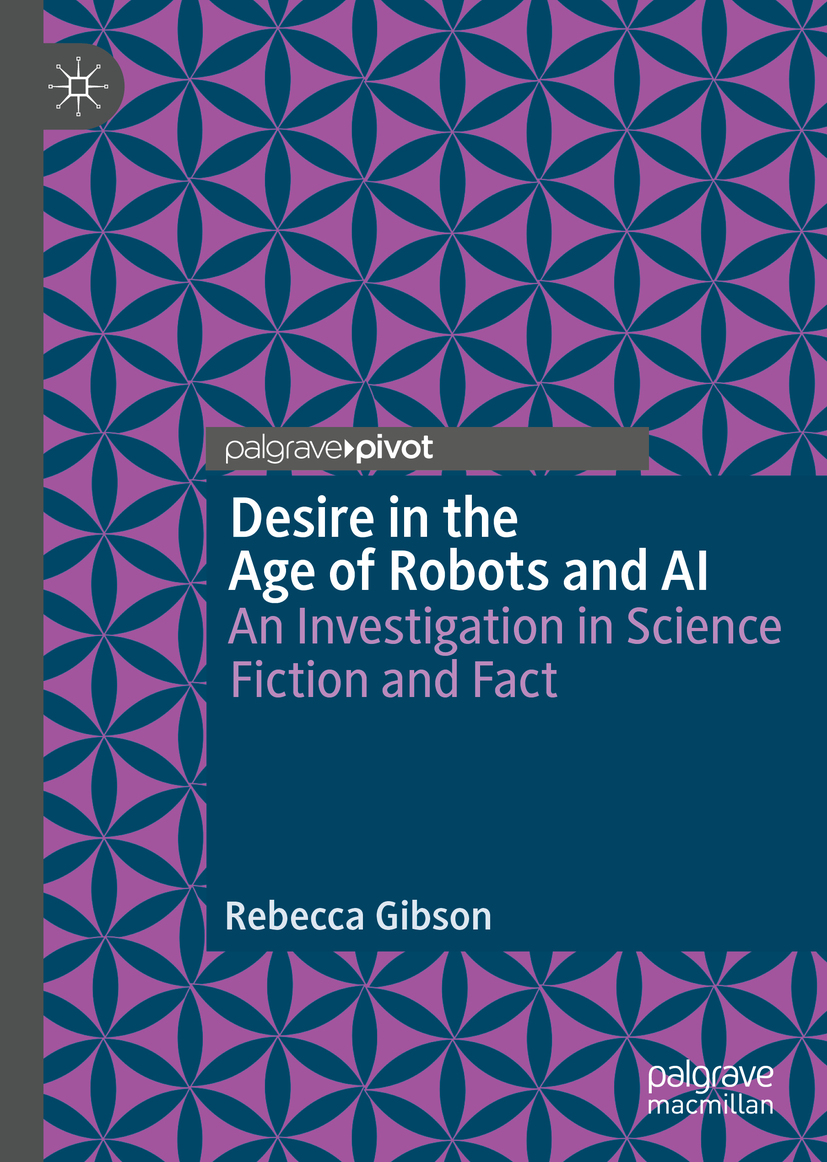Rebecca Gibson
Desire in the Age of Robots and AI
An Investigation in Science Fiction and Fact
Rebecca Gibson
Department of Anthropology, University of Notre Dame, Notre Dame, IN, USA
ISBN 978-3-030-24016-5 e-ISBN 978-3-030-24017-2
https://doi.org/10.1007/978-3-030-24017-2
The Editor(s) (if applicable) and The Author(s), under exclusive licence to Springer Nature Switzerland AG 2020
This work is subject to copyright. All rights are solely and exclusively licensed by the Publisher, whether the whole or part of the material is concerned, specifically the rights of translation, reprinting, reuse of illustrations, recitation, broadcasting, reproduction on microfilms or in any other physical way, and transmission or information storage and retrieval, electronic adaptation, computer software, or by similar or dissimilar methodology now known or hereafter developed.
The use of general descriptive names, registered names, trademarks, service marks, etc. in this publication does not imply, even in the absence of a specific statement, that such names are exempt from the relevant protective laws and regulations and therefore free for general use.
The publisher, the authors and the editors are safe to assume that the advice and information in this book are believed to be true and accurate at the date of publication. Neither the publisher nor the authors or the editors give a warranty, express or implied, with respect to the material contained herein or for any errors or omissions that may have been made. The publisher remains neutral with regard to jurisdictional claims in published maps and institutional affiliations.
Cover pattern Melisa Hasan
This Palgrave Pivot imprint is published by the registered company Springer Nature Switzerland AG
The registered company address is: Gewerbestrasse 11, 6330 Cham, Switzerland
Rebecca Gibson has given us this wonderful book that details how these technologies could have an even more profound influenceredefining that in us which is most human.
Chris Irwin Davis, Ph.D., A.I. Research Scientist
Half of the time I plug into the world through technology I am wondering about the people of the other side. As the online space expands, we become increasingly less sure where we stand in relation to digital simulacrums. Gibsons book is a delightful and dirty look on what separates us from the machines, and exactly what those differences say about us if they even exist anymore.
Jef Rouner, author of The Rook Circle
Well researched, engaging, and thought provoking, Dr. Gibson has given humanity a lot to consider when it comes to our desires and creations. The dance between science fiction and advances in technology is always complex and uniquely intertwined, but the threads here are neatly pulled apart and examined in such an insightful way that the reader cant help but find new understanding of their own inner world and the desires inherent to the human condition. A winning combination of entertaining and well documented information and analysis!
Eli Girvin, Talent Analytics Strategy Consultant with IBM
This book is dedicated to the cyborg in all of us,
and the ideas of a nautilus and a nice cup of tea.
Acknowledgments
The hard work of writing this book would not have been possible without my massive support network, which includes way too many people to mention here. Most notably, I must thank my parents, John and Judy Horwitz (you can stop sending me robot sex articles now, Dad, the book is published), for being the best parents ever; Linda Langley, who supported me during the first phase of this research and has continued to be my cheerleader ever since, for keeping body and mind together during that time; Jef Rouner, who is a true wordsmith, for inspiring me to reach for my better self; Jay VanderVeen, who has generously and tirelessly listened to me expound on various iterations of this project, for making sure I did not lose my mind into cyberspace; and Agustn Fuentes, who has given me wholehearted personal and departmental support during the writing phase, for all the early-morning meetings and late-night rambling emails. Finally, I would like to thank my excellent editorial team, Mary Al-Sayed and Madison Allums, for their kindness, promptness, advice, support, and calmness in the face of my inexperience.
Contents
List of Figures
1. The Gears and Wires of Robot Sex
This chapter introduces the main themethat sex robots have multiple uses; they fulfill our desire to create, they are physical manifestations of our storytelling natures, and they are there to be the perfect woman (and they usually are, indeed, female in form). In this chapter, Gibson unpacks some of the reasons we feel the need, as humans, to explore robotics, cybernetics, and cyborgs, rather than sticking to non-physical/fictional, but fully human, companions, and then looks at why we desire our creations and why that desire morphs into fetishizationwhich often has a racialized component. Finally, Gibson discusses the idea that sci-fi is both predictive and reactive, and we tell stories to explain our desires to ourselves and others.
Introduction
Robot sex. The act of sexual intercourse by a human with a robotic or artificial intelligence type being. Yet, somehow, more than that as well. Intimacy , romance , courting, coitus, oral sex , companionship , and the fundamental way we see ourselves have become interlinked with these two words. This book will examine how science fictions portrayal of humanitys desire for robotic and artificially created humanoid companions influences and reflects changes in our actual desires . I will begin by taking the reader on a journey through the theories that outline basic human desires we are storytellers, and we need the objects of our desire to mirror many, though not all, aspects of our beings in order that the stories we tell ourselves match our realities. I will continue by looking at three variations on one story the Blade Runner mythosstarting with the original Phillip K. Dick novella Do Androids Dream of ElectricSheep? (). Using these fictional portrayals, this book will examine the stories we tell ourselves regarding our intimate relations with robots.
There are reasons we seek out differences in our mates; having something mirror us too closely when we know they are not the same makes our skin crawl. What, then, makes a created beingwhether partial cyborg or completely mechanistic human enough , but not too human? Science fiction both creates new species of potential companions and highlights what we already want and how our desires dictate and are in return recreated by what is written. Sex with robots is more than a sci-fi pop-culture phenomenon; its a driving force in the latest technological advances in the cybernetic and artificial intelligence sciences. As such, this book fulfills a need to examine both what is in our minds and what is in our capabilities, when it comes to the creation of such beings. Contemporary scholarship does not seat this idea so firmly in the basis of science fiction , nor does it always ask the ethical questions about how we need to address the rights of and our responsibilities toward the new life forms we may soon engender. In the following chapters, I will attempt to move closer to a deeper understanding of those questions by examining the science behind the fiction and what that fiction tells us.

